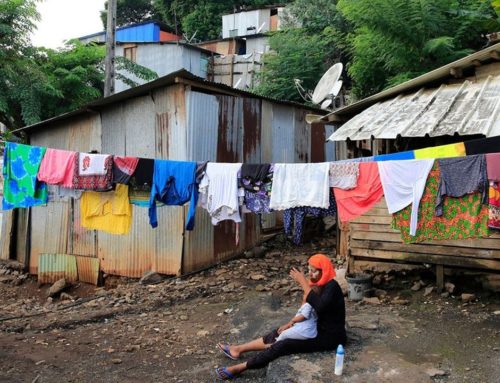Kalipeni is director of policy and federal affairs for Caring Across Generations, a national campaign reimagining the long-term care system that’s an offshoot of the National Domestic Workers Alliance and Jobs With Justice. Universal care accounts would function like a multipurpose Social Security insurance fund: One pays directly into it over a lifetime — ideally, in Kalipeni’s mind, with the government matching contributions — and could draw from it to pay for child care, take time off work to care for ill parents or pay a home health care worker to support a relative with disabilities.
[CAREGIVERS] DON’T WANT TO HAVE TO CHOOSE BETWEEN A PAYCHECK AND CARING FOR A LOVED ONE.
JOSIE KALIPENIUniversal family care is designed to address pain points of a “sandwich generation” under ballooning pressure: those caring for an aging parent, raising their children and working full time. The care burden weighs heavier on working women of color in the U.S., who’ve been caregivers by cultural tradition and through the infrastructure of slavery, while facing an acute wage gap and less intergenerational wealth. But it’s a problem that touches all demographics: An estimated 41 million people gave 34 billion hours of unpaid care to adult loved ones in 2017, spending roughly $7,000 on caregiving costs like transportation and home modifications, according to recent AARP research. “Family caregivers make it very clear that they don’t want to have to choose between a paycheck and caring for a loved one,” says Kalipeni. But they must navigate a fragmented safety net of programs, like parental leave or medical leave, depending on what their state or employer offers.
Sourced through Scoop.it from: www.ozy.com







Leave A Comment